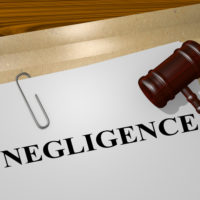What Is Funeral Home Negligence?

When you are mourning the loss of a loved one, you have limited time and energy to handle any other potential problems, which means that a good funeral home who will handle the arrangements for the ceremony and other issues. Unfortunately, sometimes funeral homes do make mistakes, and their negligence can cause serious pain and suffering to the family left behind. If you believe that a funeral home has acted negligently in the matter of your loved one’s passing, you may have a claim for damages.
Negligence and Intentional Conduct
There are multiple different types of unethical and/or negligent conduct, but some of the most common examples include improperly preparing remains (such as cremating a body that was supposed to be embalmed), failing to maintain remains before disposal (for example, failing to refrigerate a corpse prior to embalming), and providing the wrong ashes to the wrong family. Negligence is defined as failing to exercise reasonable care toward a person who is owed that reasonable care, and it is manifestly ‘unreasonable’ in this context for a funeral home to act in such a way.
It is important to distinguish between negligence and intentional unethical conduct, even though the end result may be the same in terms of any inappropriate handling of your loved one’s remains. While no amount of money will bring your loved one back, it is worth noting that intentional mishandling of remains can sometimes lead to higher damages if your case goes to trial; Florida law allows punitive damages in cases where “intentional misconduct or gross negligence” have occurred.
Can I Sue?
If your family has gone through the trauma of seeing their loved one’s body mishandled, it is natural to want to bring suit against the negligent person or company. However, Florida law only permits certain people to file a suit based specifically on funeral home negligence – the surviving spouse, children, or parents of the deceased person, or in some cases, the person that is “entitled in the Estate” of the deceased – that is, the person or persons that are “legally authorized” to handle the disposition of the person’s remains, usually named in their will.
If you are able to sue, you must establish both that the funeral home had a duty to exercise reasonable care toward its clients, and that they failed to do so. You must also show a tangible injury, and that there was no other superseding cause that played a role in the harm you and your loved ones have suffered. Some of these factors may be more difficult to show than others, but all of them must be present in order to prevail at trial in these types of cases.
Call A Tampa Funeral Home Negligence Attorney
Losing a family member or a loved one is an incredibly difficult time in anyone’s life, and if your funeral home is negligent, it can cause even more pain and suffering. The Tampa wrongful burial & cremation attorneys at the Rinaldo Law Group understand this, and will work hard to provide compassionate and dedicated representation to you and yours during a horrible event. Contact us today for a free consultation.
Resource:
leg.state.fl.us/statutes/index.cfm?App_mode=Display_Statute&URL=0700-0799/0768/Sections/0768.72.html
https://www.tampainjuryaccidentlaw.com/spotting-florida-funeral-home-negligence/












